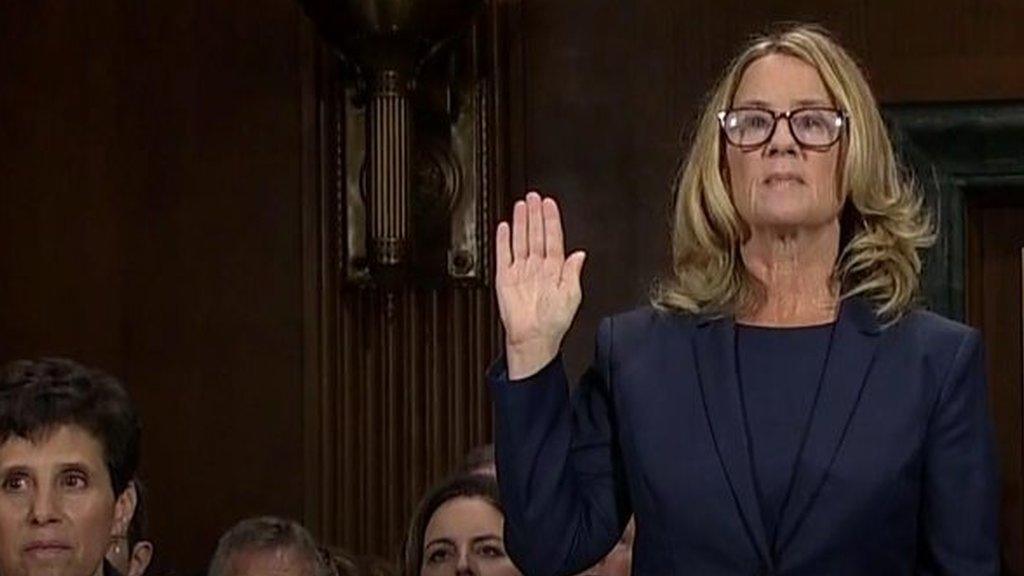Brett Kavanaugh: Key test vote on Supreme Court nominee passes
- Published
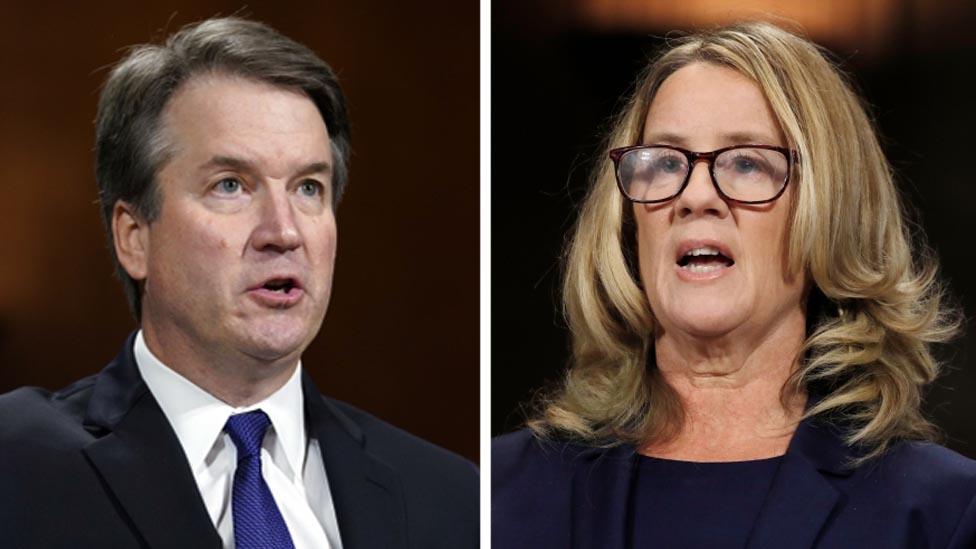
Judge Kavanaugh has vehemently denied the allegations made by Prof Christine Blasey Ford
The US Senate has narrowly advanced President Donald Trump's Supreme Court nominee Brett Kavanaugh's nomination to a final vote.
Friday's vote - 51-49 in favour - was a test of support for the embattled nominee who has faced sexual assault allegations from several women.
All eyes are on several swing senators for Saturday's final vote.
Judge Kavanaugh's confirmation would tilt America's highest court in favour of conservatives.
The nine-member panel has the final say on issues such as abortion, gun control and voting rules and justices are appointed for life.
Allow X content?
This article contains content provided by X. We ask for your permission before anything is loaded, as they may be using cookies and other technologies. You may want to read X’s cookie policy, external and privacy policy, external before accepting. To view this content choose ‘accept and continue’.

Following Friday's vote, Mr Trump tweeted that he was "very proud".
Hundreds of protesters against Judge Kavanaugh were arrested in Washington DC, on Thursday, including comedian Amy Schumer.
After Friday's vote, dozens also were arrested outside Republican Senator Jeff Flake's office. Mr Flake told reporters that unless "something big" changes, he will vote to confirm Judge Kavanaugh.
Protesters take to Capitol Hill
What was Friday's vote for?
Friday's "cloture" vote activated a 30-hour period of discussions in the Senate, which will be followed by the final simple majority vote on Saturday.
Republicans have a 51-49 majority in the Senate. But two key swing senators voted against their party colleagues: Republican Lisa Murkowski and Democrat Joe Manchin.
Mr Manchin, of West Virginia, represents a traditionally Republican state that Mr Trump won by a landslide. The self-described "most centrist Democrat" is also up for re-election this year.
Collins: I vote to confirm Judge Kavanaugh
Ms Murkowski of Alaska, a state that also voted pro-Trump in 2016, has been undecided on Judge Kavanaugh throughout the hearings.
She has been lobbied by sexual assault survivors to vote against the judge and represents a state with the highest sex crime rate by far in America, according to FBI data, external.
Despite deciding against the nominee on Friday, she told reporters afterwards she has still not made up her mind on the confirmation vote, according to Reuters news agency.
Another key Republican senator, Susan Collins, a moderate from Maine, announced that she would vote in favour of Judge Kavanaugh on Saturday.
'Ford is a liar': Trump supporters' unequivocal backing for Kavanaugh
Given that Republicans have a razor-thin margin of control in the Senate, the party can potentially only afford another defection if it wants to confirm Judge Kavanaugh to the Supreme Court - assuming the two swing senators vote the same on Saturday.
Complicating matters, the office of Republican Steve Daines said on Thursday he was planning to attend his daughter's wedding in Montana on Saturday. On Friday morning, he was reported to be arranging travel back to Washington DC for the final vote.
The judge has maintained he would be a neutral justice in a Wall Street Journal editorial titled, "I am an independent, impartial judge", external.
Addressing his angry testimony to the Senate Judiciary Committee, where he branded the allegations against him an "orchestrated political hit", he wrote: "I know that my tone was sharp, and I said a few things I should not have said."
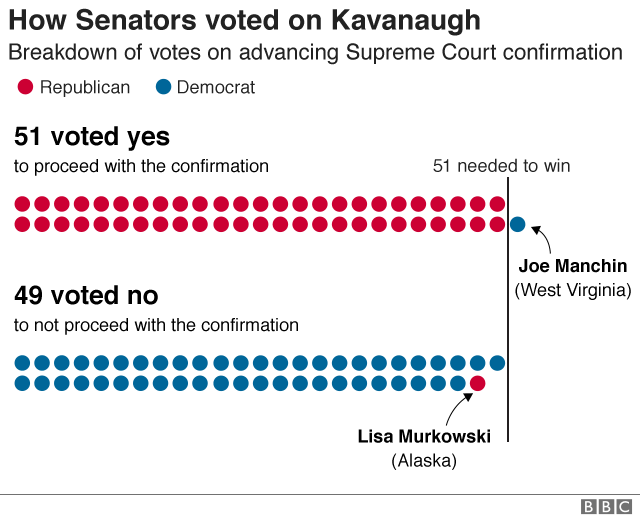

Going down to the wire
Analysis by Anthony Zurcher, BBC News
The margin of error for confirming Brett Kavanaugh has evaporated. With Lisa Murkowski voting No on a key procedural motion, it seems very likely she will be a No on the final vote, as well.
Republicans had one vote among their ranks to spare. Now, unless someone like West Virginia Democrat Joe Manchin crosses party lines, they have to hold ranks.
Arizona Senator Jeff Flake, whose change of heart prompted the current week-long delay in a final vote, has signalled he's a probable Yes. Republicans might be inclined to keep him comfortably sequestered in a quiet room in the Capitol until tomorrow.
That leaves Susan Collins of Maine as the probable deciding vote. She'll announce her intentions later on Friday. If she says she's a Yes, Mr Kavanaugh can start shopping for Supreme Court robes. If she's a No, Saturday will get very interesting.

What was the FBI inquiry about?
Judge Kavanaugh has faced sexual assault allegations from several women, most prominently Professor Christine Blasey Ford.
Christine Blasey Ford said she was "100%" sure Brett Kavanaugh assaulted her
Both gave public testimony last week in which Prof Ford said she had been assaulted by Judge Kavanaugh when they were both teenagers in 1982.
Judge Kavanaugh denied the claim - and allegations that he drank to the point of memory loss at the time - in a feisty confrontation with senators.
After the testimony, President Trump agreed to a new FBI inquiry.
Federal agents are believed to have spoken to five witnesses regarding Prof Ford's accusations and another four other witnesses involving a separate accusation by Deborah Ramirez, who said the nominee had exposed himself to her when they were both at Yale University. He denies Ms Ramirez's allegations, too.
Feinstein and McConnell have very different views on the FBI report
Mr Trump and his fellow Republicans said the new FBI report had cleared their nominee.
But Democratic senators said it had been incomplete.
The lawyers of both women have also complained that several witnesses they had offered to the FBI to corroborate their claims had not been contacted at all.
- Published4 October 2018
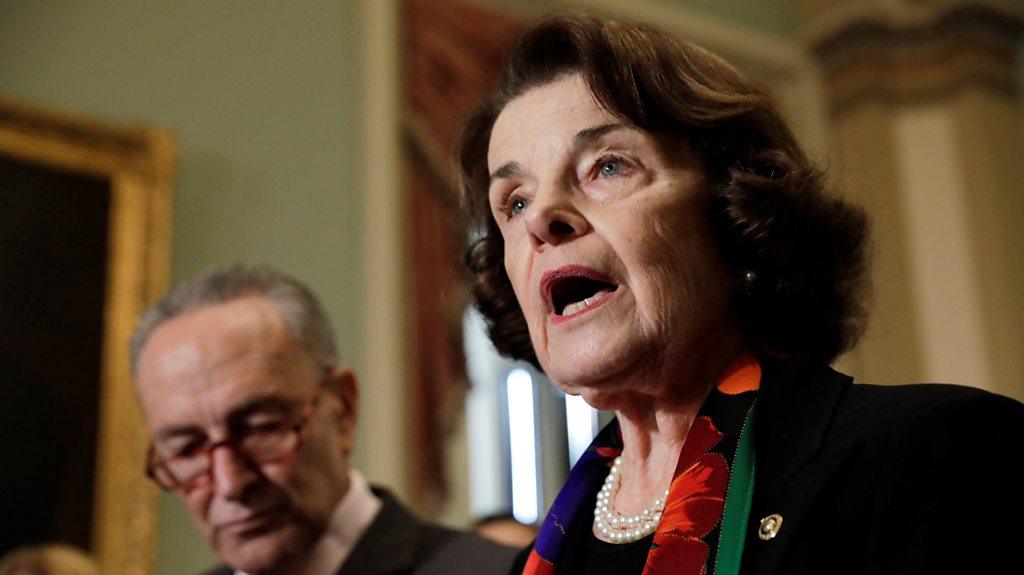
- Published4 October 2018
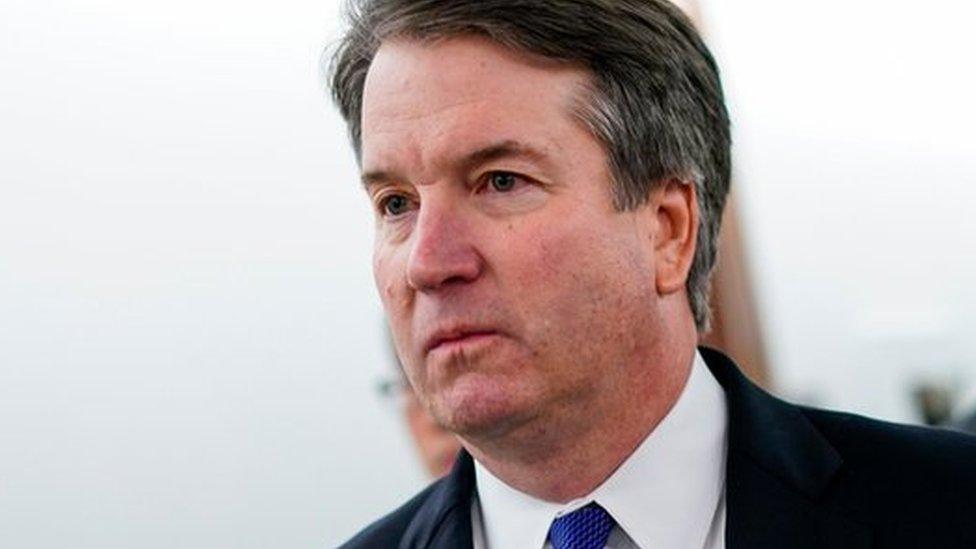
- Published5 October 2018
- Published24 September 2018
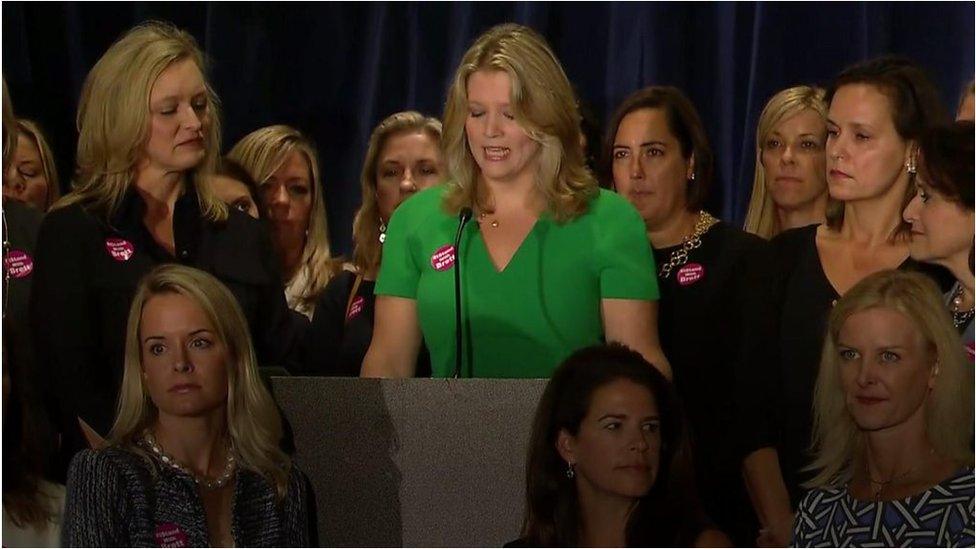
- Published5 October 2018
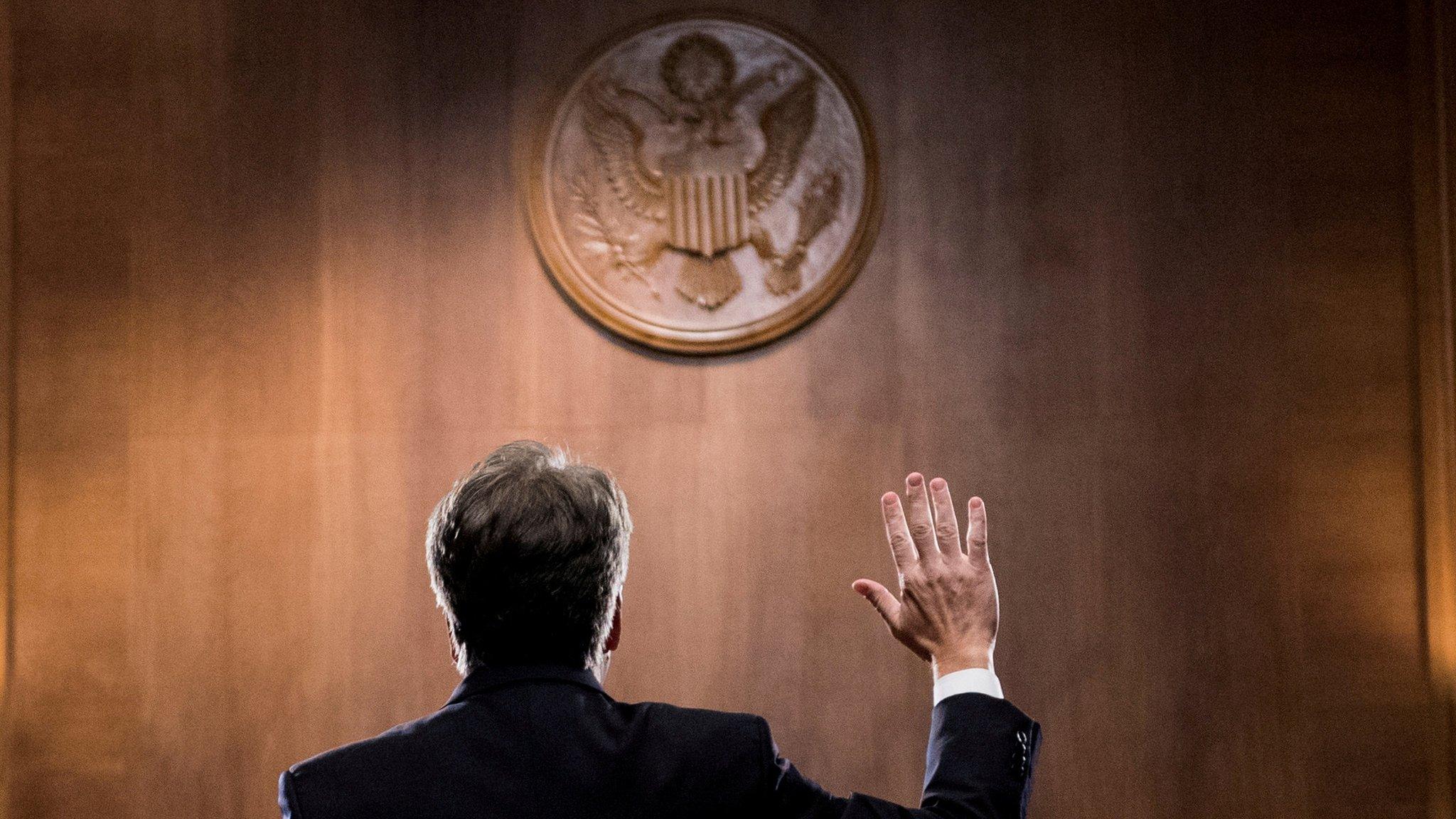
- Published18 September 2018
- Published27 September 2018
